Castle Panic: Unofficial Ancient Greek Edition
Reading Greek is a lot of fun all by itself, but adding in some gaming can make it even better. A few years ago, I took a class with Seumas in which, instead of reading, we played an RPG in Latin. Here is his retrospective. That was a lot of fun! We need more of this. In my previous post I mentioned playing games at the Polis event. This post is about one of those. I now present to you Castle Panic: Unofficial Ancient Greek Edition.
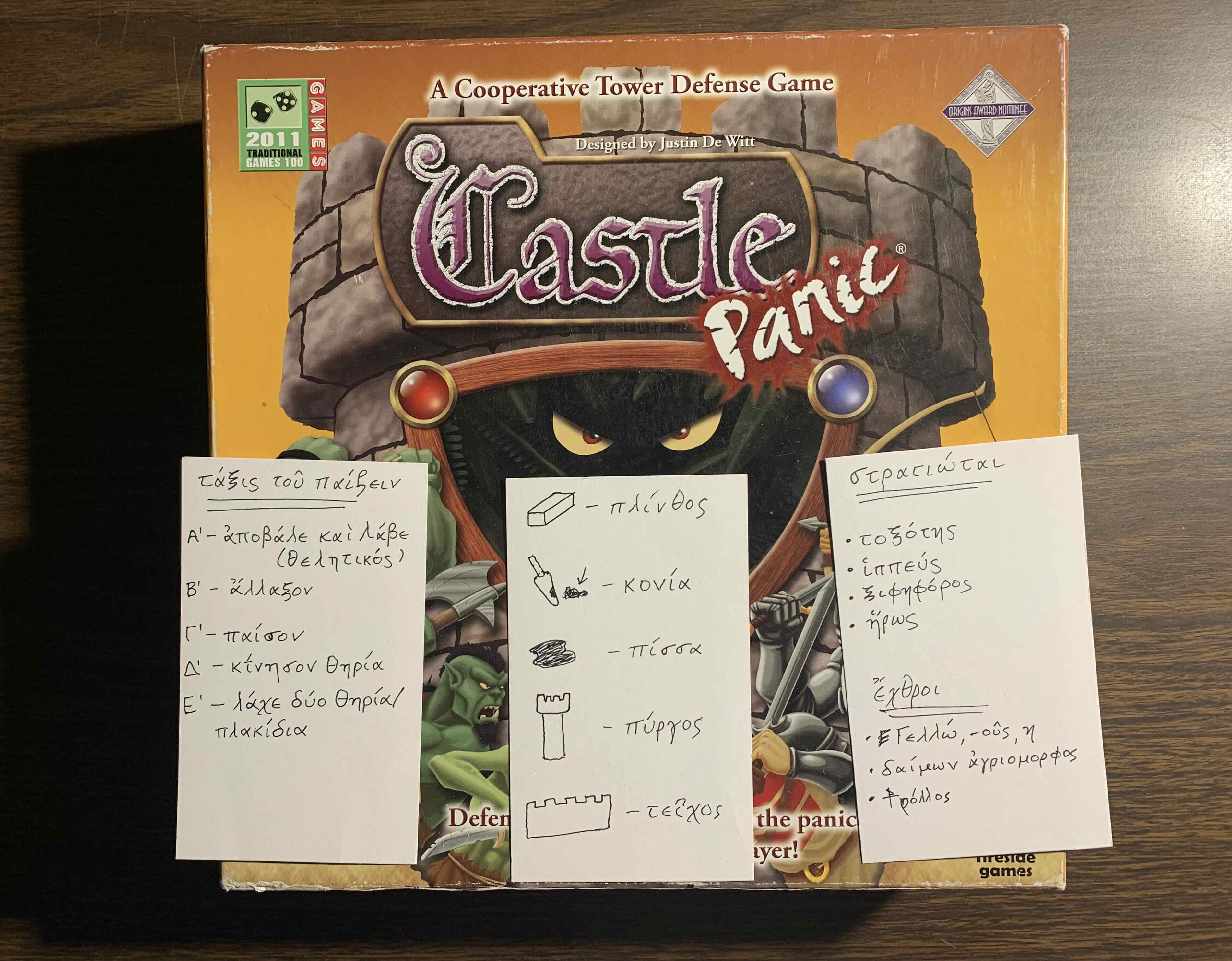
Castle Panic is a multiplayer cooperative board game. Instead of fighting your teammates, you're working together to defeat the hordes of monsters coming to destroy your castle.
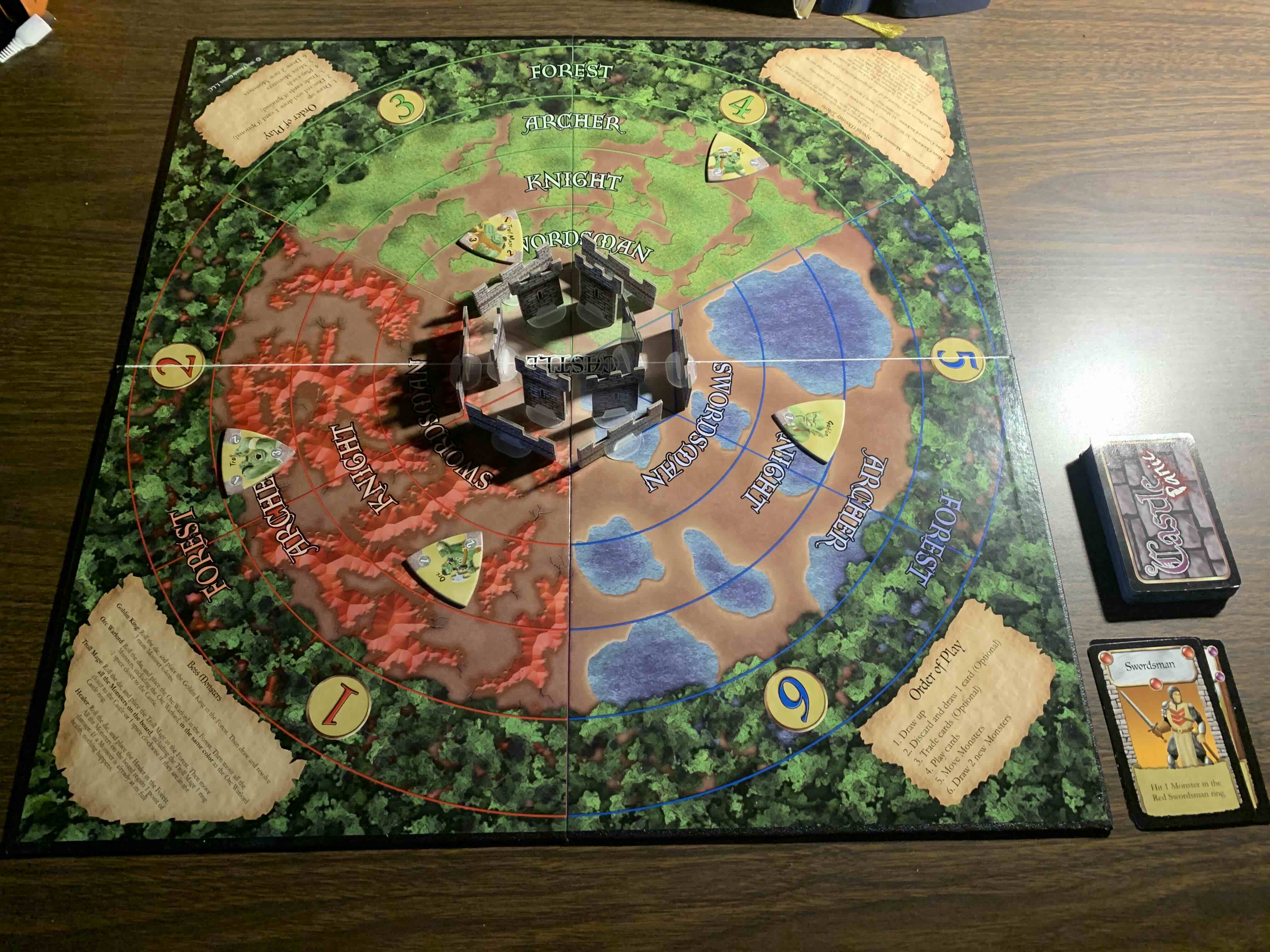
This particular game appealed to me because it's fun and because the necessary vocabulary is very constrained in scope. The vocabulary needed to play Castle Panic was limited to a few colors, words for the pieces in the game, and language needed to negotiate plans. "I want to kill that goblin with my swordsman." "Well, it seems to me that it would be better to attack the troll because the goblin will die when he attacks the wall," et cetera.
Running an RPG like D&D would be extremely difficult. The rules are quite complex, so a simpler system would be good. Seumas used Fate Condensed and that worked great. Along with the burden of rules, the DM would also need to paint quite a world in the second language, which could be daunting. With either an amazing vocabulary or enough preparation time, that's surely doable. But for Castle Panic, I didn't need a ton of time.
If you'd like to give it a shot, here's the vocabulary I came up with. First, words for soldiers and monsters.
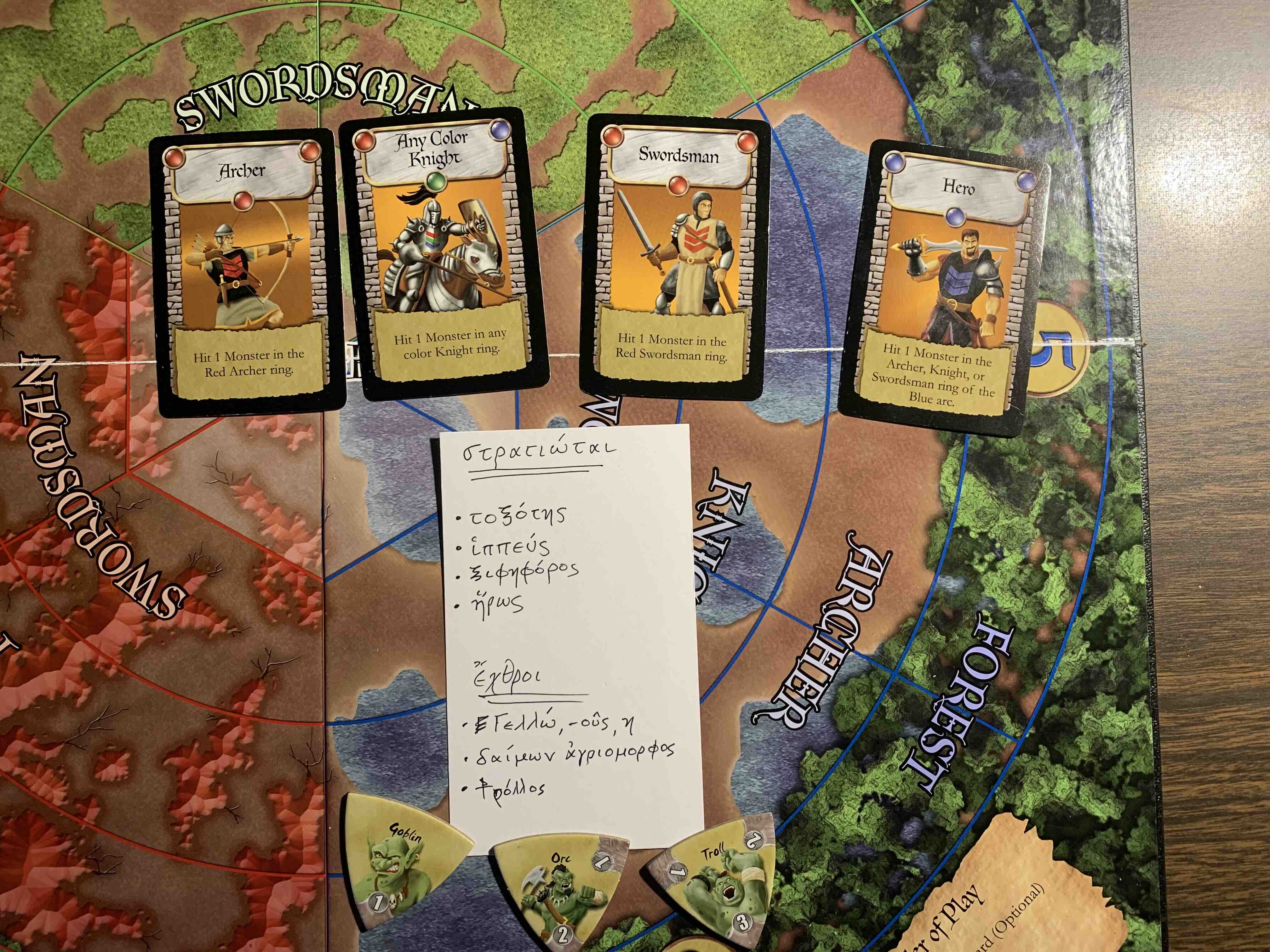
Next, there's a number of items that I figured others might not know. Pitch and mortar, for example, usually won't be in the beginner books.
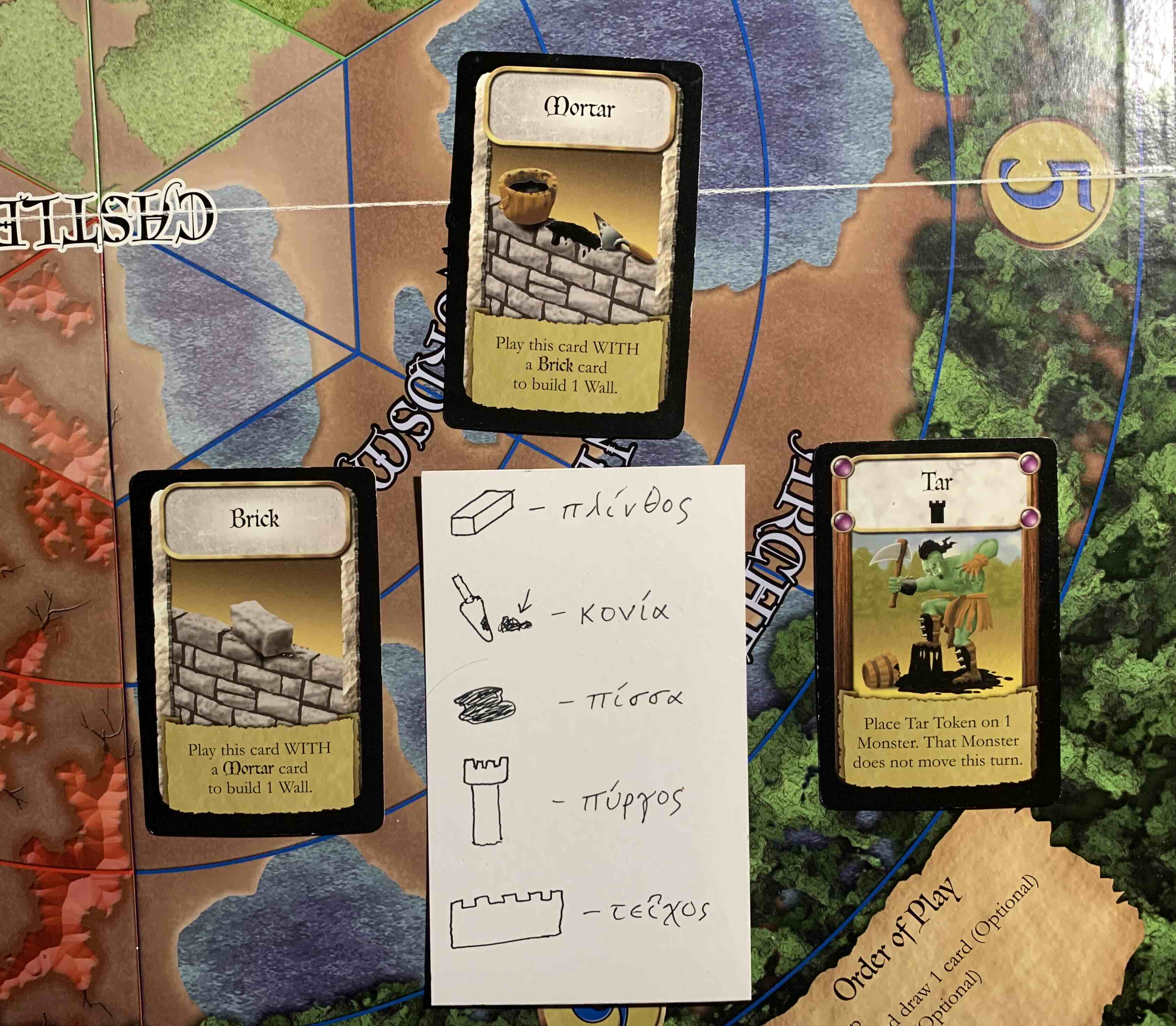
And finally, the order of play.
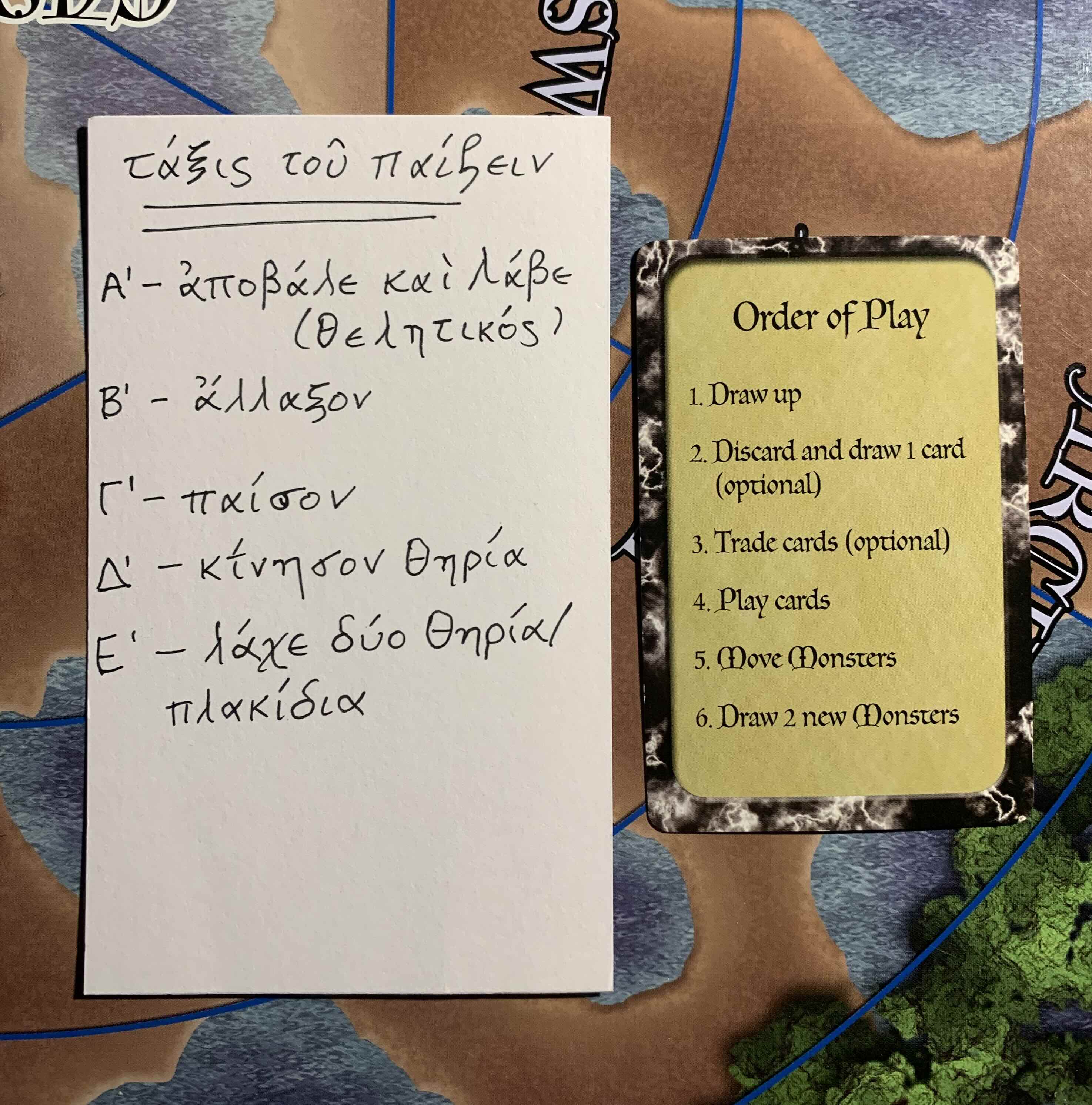
I think I played three or four rounds over a couple of days. The experiment was fun and well worth the investment!